Alternative Energy Solutions for Ontario Residents
Residential Solar Panels Ontario & Net Metering Ontario
Alternative energy solutions are renewable sources of energy that can reduce reliance on fossil fuels and decrease carbon emissions. These solutions include solar, wind, and hydro power.
Ontario has set ambitious goals to reduce its greenhouse gas emissions, and alternative energy solutions play a critical role in achieving these goals. Moreover, these solutions can help homeowners and businesses reduce their energy bills and increase energy independence.
This blog post will explore alternative energy solutions in Ontario, specifically residential solar panels and net metering. We will discuss the benefits, costs, and installation process for solar panels, as well as how net metering works and its eligibility criteria. Additionally, we will address some frequently asked questions related to alternative energy solutions.
Alternative energy solutions refer to energy sources that are renewable and sustainable. They are generated from natural resources such as sunlight, wind, water, and biomass, and can be used to produce electricity and heat without producing harmful greenhouse gas emissions.
There are various types of alternative energy solutions available, including:
- Solar energy: This is energy generated from sunlight using photovoltaic cells. Solar panels can be installed on rooftops or in open spaces to generate electricity.
- Wind energy: This is energy generated from wind using wind turbines. Wind turbines can be installed on land or offshore to generate electricity.
- Hydro energy: This is energy generated from the movement of water. Hydroelectric power plants can be built on rivers or waterfalls to generate electricity.
The benefits of alternative energy solutions include reducing reliance on fossil fuels, reducing carbon emissions, and increasing energy independence. They can also lead to lower energy bills and create new job opportunities in the renewable energy sector.
Residential solar panels are photovoltaic panels that are installed on rooftops or open spaces to generate electricity for homes. They capture sunlight and convert it into DC electricity, which is then converted into AC electricity through an inverter and fed into the home's electrical system.
The benefits of installing residential solar panels in Ontario include:
- Reducing electricity bills: Solar panels can reduce or even eliminate a homeowner's electricity bills by generating their own electricity.
- Increasing energy independence: Solar panels can provide homeowners with a reliable source of electricity even during power outages or high demand periods.
- Reducing carbon footprint: Solar panels produce clean energy without emitting harmful greenhouse gasses, making them an eco-friendly option.
The installation process for residential solar panels typically involves the following steps:
- Assessment of the site: A professional installer will assess the home's location, orientation, and shading to determine if it is suitable for solar panels.
- Design of the system: The installer will design a solar energy system that is tailored to the homeowner's energy needs and site conditions.
- Installation of the panels: The solar panels will be mounted on the roof or on racks and connected to the home's electrical system.
- Connection to the electrical grid: The installer will connect the solar panels to the electrical grid through a net metering system, allowing excess energy to be fed back into the grid and credited to the homeowner's account.
The cost of installing residential solar panels in Ontario varies depending on the size of the system and the quality of the equipment used. A typical residential system can cost anywhere from $10,000 to $30,000 or more.
Incentives for installing solar panels in Ontario include:
- Federal tax incentives: Homeowners can claim a tax credit of up to 26% of the cost of their solar panel installation.
- Provincial incentives: Ontario's Green Energy Act provides incentives for renewable energy projects, including solar panel installations.
- Net metering: Homeowners can earn credits for any excess energy they generate and feed back into the grid, reducing their electricity bills.
Net metering is a billing system that allows homeowners with solar panels or other renewable energy systems to earn credits for any excess energy they generate and feed back into the grid. These credits can be used to offset their electricity bills.
In Ontario, net metering is available to homeowners who generate electricity using renewable sources such as solar, wind, hydro, and biomass. Under this system, any excess energy generated is credited to the homeowner's account at the retail rate. The credits can be used to offset future electricity bills or carried forward to the next billing period.
The benefits of net metering include:
- Reduced electricity bills: Homeowners can reduce their electricity bills by generating their own energy and earning credits for any excess energy they feed back into the grid.
- Increased energy independence: Net metering allows homeowners to generate their own energy and reduce their reliance on the electrical grid.
- Reduced carbon footprint: By generating clean energy and reducing their reliance on fossil fuels, homeowners can reduce their carbon footprint and contribute to a cleaner environment.
To be eligible for net metering in Ontario, homeowners must meet the following criteria:
- The system must be connected to the electrical grid.
- The system must generate electricity using renewable sources.
- The system must be less than 500 kilowatts in capacity.
- The homeowner must have a valid electrical permit and interconnection agreement.
To apply for net metering in Ontario, homeowners must follow these steps:
- Contact their local distribution company to ensure their system meets the eligibility criteria and to request an application form.
- Complete the application form and provide any required documentation, such as proof of ownership, electrical permit, and interconnection agreement.
- Wait for approval from the distribution company before connecting their system to the grid.
Once approved, the homeowner can start generating their own energy and earning credits for any excess energy they feed back into the grid.
What are the benefits of alternative energy solutions?
Alternative energy solutions have numerous benefits, including reducing reliance on fossil fuels, reducing carbon emissions, increasing energy independence, lowering energy bills, and creating new job opportunities in the renewable energy sector.
How do residential solar panels work in Ontario?
Residential solar panels in Ontario work by capturing sunlight and converting it into DC electricity using photovoltaic cells. This electricity is then converted into AC electricity through an inverter and fed into the home's electrical system. Any excess energy generated can be fed back into the electrical grid through net metering.
What is the cost of installing residential solar panels in Ontario?
The cost of installing residential solar panels in Ontario varies depending on the size of the system and the quality of the equipment used. A typical residential system can cost anywhere from $10,000 to $30,000 or more. However, homeowners can recoup their investment over time through lower energy bills and incentives such as net metering.
What incentives are available for installing residential solar panels in Ontario?
Incentives for installing residential solar panels in Ontario include federal tax credits of up to 26% of the cost of installation, provincial incentives through the Green Energy Act, and net metering credits for any excess energy generated and fed back into the grid.
How does net metering work in Ontario?
Net metering in Ontario allows homeowners with renewable energy systems to earn credits for any excess energy they generate and feed back into the grid. These credits can be used to offset their electricity bills or carried forward to the next billing period. Net metering is available to homeowners who generate electricity using renewable sources such as solar, wind, hydro, and biomass.
What are the benefits of net metering in Ontario?
The benefits of net metering in Ontario include reduced electricity bills, increased energy independence, and reduced carbon footprint. Homeowners can reduce their reliance on the electrical grid, generate their own clean energy, and contribute to a cleaner environment.
Who is eligible for net metering in Ontario?
Homeowners in Ontario who generate electricity using renewable sources such as solar, wind, hydro, and biomass are eligible for net metering. The system must be connected to the electrical grid, generate less than 500 kilowatts, and comply with all applicable electrical codes and regulations.
How do I apply for net metering in Ontario?
To apply for net metering in Ontario, homeowners must contact their local distribution company to ensure their system meets the eligibility criteria and to request an application form. They must then complete the application form and provide any required documentation, such as proof of ownership, electrical permit, and interconnection agreement.
Can I sell excess energy back to the grid in Ontario?
Yes, homeowners with renewable energy systems in Ontario can sell any excess energy they generate back to the grid through net metering. The excess energy is credited to the homeowner's account at the retail rate and can be used to offset future electricity bills.
What is the lifespan of residential solar panels in Ontario?
Residential solar panels in Ontario can last for 25 years or more, depending on the quality of the panels and the installation. Regular maintenance can help prolong the life of the panels.
In conclusion, alternative energy solutions such as residential solar panels and net metering offer numerous benefits to Ontario residents, including reduced reliance on fossil fuels, lower energy bills, and increased energy independence.
We encourage readers to consider alternative energy solutions and explore the incentives available to them.
By adopting alternative energy solutions, Ontario residents can contribute to a cleaner environment and create a sustainable future for generations to come.
Investing in alternative energy solutions such as residential solar panels and net metering not only benefits the environment, but it also has numerous economic and financial advantages. By generating their own clean energy, homeowners can reduce their reliance on the electrical grid and lower their energy bills, while also contributing to a more sustainable future. Moreover, incentives such as net metering and tax credits make it more affordable for homeowners to install renewable energy systems.
As the world continues to face the challenges of climate change, alternative energy solutions are becoming more important than ever. By choosing to invest in renewable energy, homeowners in Ontario can take an important step towards reducing their carbon footprint and contributing to a more sustainable future for generations to come.
We encourage readers to consider alternative energy solutions and explore the incentives available to them. With the right investment and commitment, we can all play a role in building a more sustainable and eco-friendly world.










